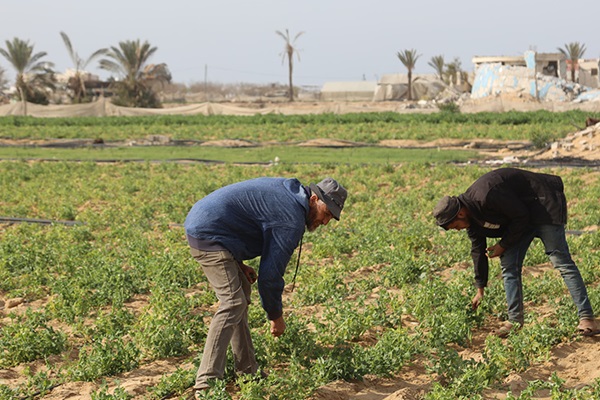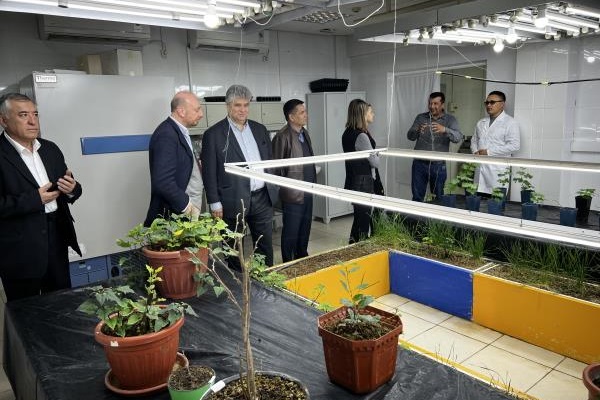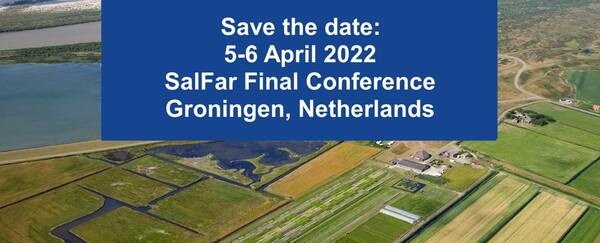Saline agriculture
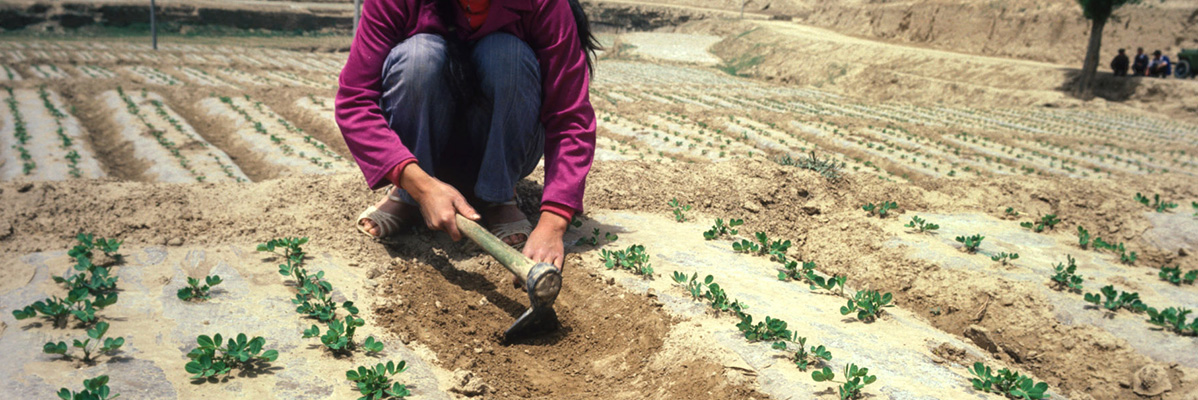
Increasing salinity conditions is one of the results of climate change which affects agriculture production, food security and nutrition, with the potential to lead to environmental degradation. In response, AWSAMe relies on the Global Framework on Water Scarcity in Agriculture (WASAG)'s working group on saline agriculture.
In 2024, AWSAMe facilitated training on saline agriculture in two emerging salinity hotspots: Cabo Verde and Uzbekistan, with different contexts. Both training workshops were based on WASAG’s Thematic 1: Farmers’ guidelines on soil and water management in salt affected areas produced by the WASAG's working group on saline agriculture and which is aimed at assisting farmers in their decision making processes in dealing with salinity and sodicity issues on their farmlands.
Cabo Verde
Cabo Verde, one of the Small Island Developing States (SIDS), faces the composite challenges associated with climate change, saline intrusion and persistent drought. These challenges pose considerable risks to agricultural productivity, thus calling for innovative solutions to soil and water management and to water supply in general.
Saline agriculture is a major opportunity to productively and sustainably practice agriculture in those affected areas by promoting practices that are suitable for saline environments. The adoption of climate resilient crops in Cabo Verde can contribute to sustainable soil management, addressing water scarcity, and promoting good agronomic practices and value chains, resulting in improved food security and nutrition, job creation and income generation.
Training workshop
The training workshop, which was held from 2 to 4 April 2024, focused on how to cope with increasing (ground) water salinity, considering that the country is one of the SIDS facing increasing saline intrusion, under the prevailing context of sea level rise. Farmers, technicians, researchers, extension officers and other stakeholders learned from hands on experience to adopt best management practices and improve their water use efficiency in the context of increasing saline conditions.
The training workshop also aimed to:
- provide technical guidance to farmers and extension officers in Cabo Verde on climate resilient crops that are suitable to the context of the country, including (but not limited to): pearl millet (Pennisetum glaucum), buffel grass (Cenchrus ciliaris), alfalfa (Medicago sativa), asparagus (Asparagus officinalis) and quinoa (Chenopodium quinoa); and
- provide capacity‑building assistance to farmers, extension officers, agriculture practitioners, and researchers in Cabo Verde, using WASAG’s farmers' guidelines, which were translated into French and Portuguese.
Uzbekistan
In Uzbekistan, the climate is predicted to become more arid. Since Uzbekistan draws substantial amounts of water from the Amudarya River for agriculture, the foreseen decrease of these water resources is expected to have a severe impact on the country’s economy. The large scale irrigation systems are already suffering from water shortages, while higher temperatures will increase the volume of water required by the irrigated crops, and soil salinity may further increase.
More than 70 percent of the Uzbek population live in rural areas and depend on agriculture. Land degradation poses an economic and environmental challenge in Uzbekistan and has significantly contributed to the negative impacts on the production of crops and livestock, agricultural incomes and rural livelihoods, with varying degrees of salinization. In addition, the shrinking of the Aral Sea in Central Asia occurred concurrently with soil and water quality degradation – due to poor water management and poor drainage in Aral Sea riparian countries – resulting in increased salinity affecting approximately half of the irrigated land.
Training workshop
The training workshop, which took place from 19 to 21 March 2024, was centred around soil and water management under saline conditions in a landlocked context with the following objectives:
- provide capacity‑building assistance to farmers, extension officers, agriculture practitioners, and researchers in Uzbekistan to facilitate the adoption of WASAG’s farmer's guidelines, which were translated into Uzbek; and
- support farmers in their decision making processes in dealing with salinity and sodicity issues in their lands.
Publication
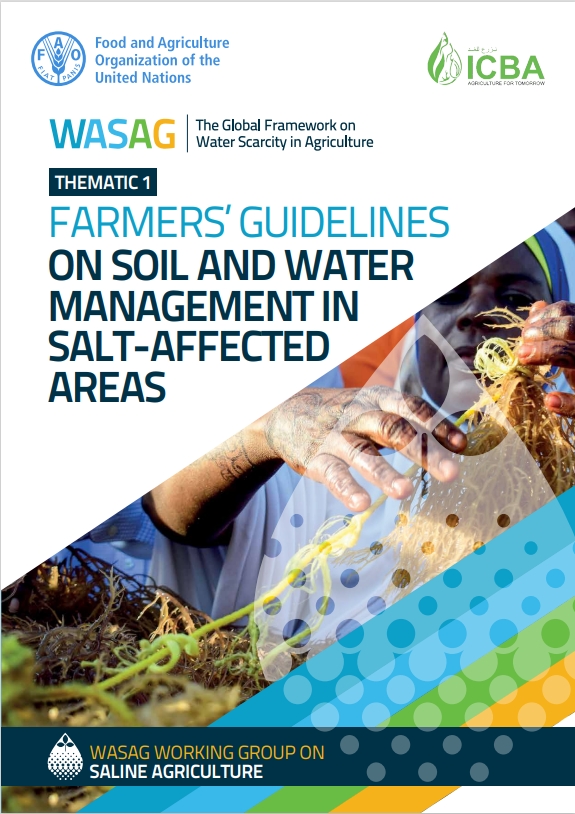
Thematic 1: Farmers’ guidelines on soil and water management in salt-affected areas
02/01/2023
The WASAG working group on Saline agriculture prepared these guidelines, which address the dire threats posed by salt-affected soils to global food...
Webinars
Webinar
Saline Agriculture: Scaling up Opportunities and Challenges
26/05/2020
The Global Framework on Water Scarcity in Agriculture (WASAG) hosted by the FAO Land and Water Division held its second webinar on Saline Agriculture...

